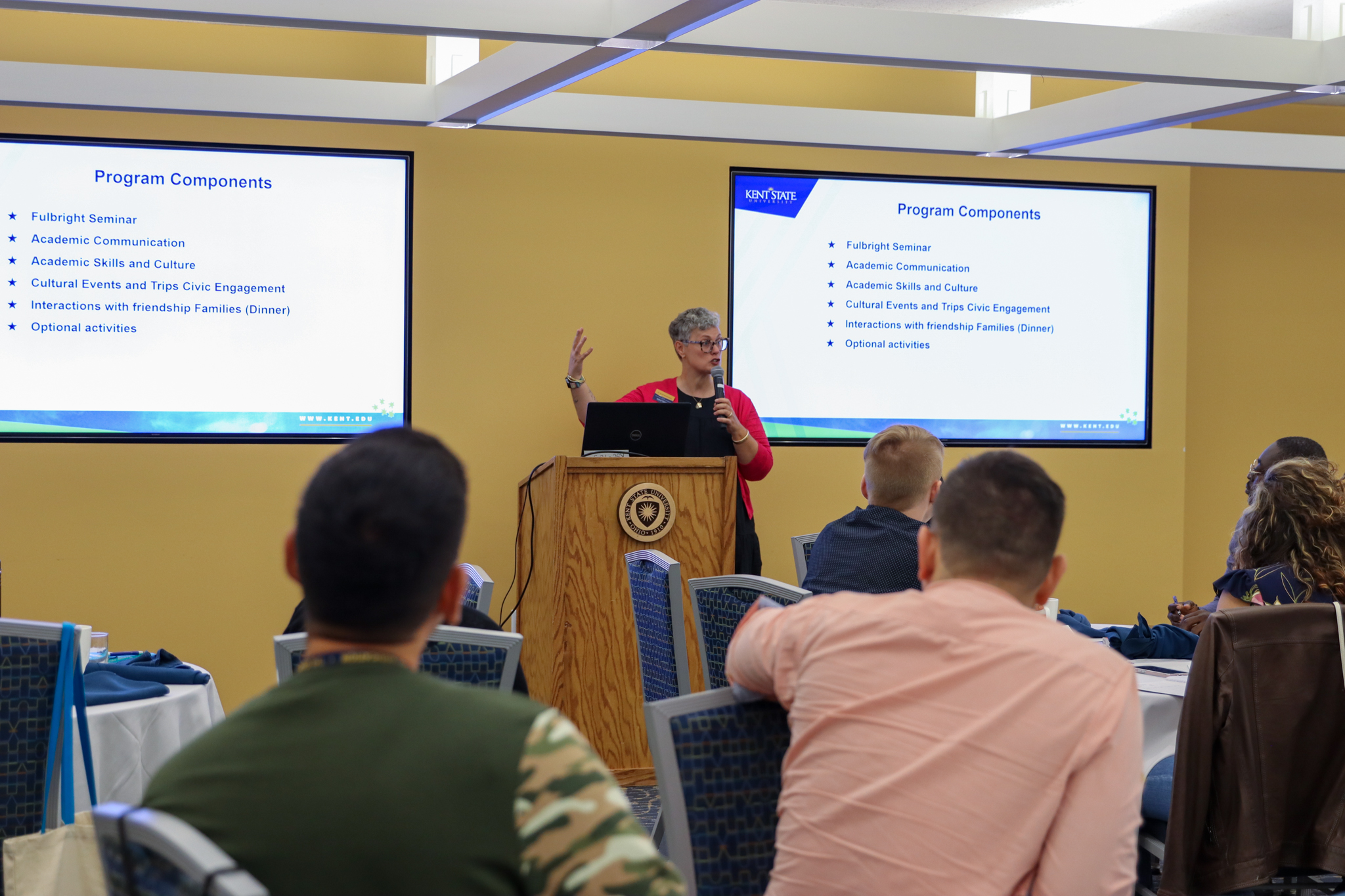The dynamic leadership of Amanda Johnson, Ph.D., as director of the Gerald H. Read Center for International and Intercultural Education, has been a driving force for the center’s success in the three years she has been in the role. She is passionate about the advancement of international and intercultural education through the center and its programs, saying “At the end of the day, I love the kind of work that we do here, and I love that I get to do it.”
Johnson, a first-generation college student, earned her Bachelor of Arts in History from Hollins College and Master of Arts in Teaching English to Speakers of Other Languages from Eastern Michigan University. During her undergraduate academics, she took part in a study abroad experience in England that served as an early steppingstone to her career in international education. At the College of William and Mary, she earned her Ph.D. in Educational Policy, Planning and Leadership with her dissertation focusing on higher education change in Ecuador.

Johnson came to şÚÁĎÍř during the COVID-19 pandemic, following a rich history of service to higher education institutions across the globe. She spent time in the English department at Pukyong National University in Busan, South Korea, and served as an instructor and administrator at Universidad EspĂritu Santo in Guayaquil, Ecuador. Johnson then returned to the United States, landing at Virginia Tech, where she oversaw special programs at the university’s Language and Culture Institute. In this role, she gained valuable project management and grant writing experience through the creation of English language training programs and collaborations with other institutions around the world.
But once she joined şÚÁĎÍř, she knew she was home. “From day one, people were super welcoming,” said Johnson. Since 2020, she has led the Gerald H. Read Center for International and Intercultural Education through periods of impressive growth and collaboration. The center is housed in the College of Education, Health and Human Services, and serves şÚÁĎÍř and the global community by acting as a catalyst for internationalization and responding to the needs of the university and college.
Johnson says, “There's not one easy box to place the Read Center because it is such a different type of entity.” The center operates in a more dynamic and flexible way than other departments around campus. Its nimbleness enables the center to advance its mission of promoting international and intercultural education by multiple means: institutional partnerships, grant funded programming, education abroad, and international programming and events. By using this wide range of tools, it can place a special emphasis on the multidisciplinary nature of international education.

Johnson’s professional experience has helped her cultivate institutional partnerships and build relationships with EHHS faculty members that have given the center a major advantage. One such relationship led to the collaboration between the center and the School of Peace and Conflict Studies to host Peace Education in an Era of Crisis: State of the Art Issues, Strategies and Perspectives, a conference held in Kigali, Rwanda, in July. Others have led to a successful exchange program with Toyo University in Japan. Additionally, through Johnson’s leadership, the center has facilitated the participation of more than 150 international students and scholars in şÚÁĎÍř coursework, research and other initiatives.
Beginning in July, the center hosted international students participating in the Fulbright Pre-Academic Training Program, a four-week initiative supporting their smooth transition into graduate programs in the United States. Johnson aims to lead the center through another successful rendition of this program next summer, and the renewal of the center’s Fulbright Teaching Excellence and Achievement Grant this fall. She is constantly searching for the next thing that will advance the mission of the center and its impact on the campus, the community, Northeast Ohio and the world.
The work of the center is also supported by James Hannon, Ph.D., dean of the College of Education, Health and Human Services, and the center’s professional advisory board. Dr. Johnson expresses her gratitude for the type of work she does in the center and at the university, and the kind of exciting, innovative programming that’s to come.

